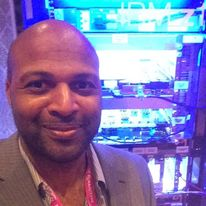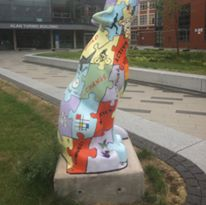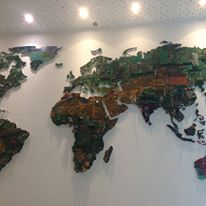Maybe we misjudged the mainframe?

My first direct encounter with the mainframe happened in my first job that never was.
I turned down this job when a fresh graduate from my bachelors degree in Computer Science degree long, long ago. Holding a conditional offer from a well known company, it had felt like a great future in the making! They were a brand name riding high. Their researchers regularly appeared on television and their share price marked them out as an engine of growth.
Grades achieved, conditions met, I was eager to begin; My first real job in computing….and then I paid them a visit! They wanted me to work on what??? A large anonymous, centralised system for internal customers? In an environment that reeked of defeat and decay? It seemed a bad place to start and a worse place to finish…and so I ran!
I ran head long into the world of mobile comms software engineering; towards excitement, innovation and rewards!

Fast forward a few years; I’m a new Computer Science academic looking to get involved with some new and interesting technology. Happy to no longer be forced to chase shiny new tech buzzwords for their own sake and interested in technologies, their origins and understanding their real impact. More importantly perhaps, thinking about how I could challenge my best students and help them find interesting careers for the future.

The University of Wolverhampton wolf outside the Alan Turing Building (Where I work)
Well, to quote a surly but brilliant blog post on the subject “A funny thing happened on the way to the future…” many of the “Legacy” mainframe systems we once avoided for the sake of our CVs, are very much still running. What’s more, many of these systems are busier than ever. Engineered for resilience, security and high rates of throughput, they are the Cinderella systems of IT. Though something of a mystery to the uninitiated, they have an interesting heritage, establishing the study of software engineering as a discipline and have pioneered ideas as pivotal to modern computing as virtualisation and the eight bit byte.
Moreover, as highly available transaction processing engines and the gateway to much of the worlds corporate data they are part of an information ecosystem of ever increasing importance. At the same time, in recent years, mainframes have embraced Linux and Open Source, opening up opportunities to bring their characteristic qualities to the software ecosystems we know and love. That may mean providing capacity to permissioned blockchains or hosting mission critical applications as part of a hybrid cloud architectures. Since engaging with this community some years ago I have discovered some really interesting projects and been able to put my students on the path to some really great careers. Though some wise folk have always seen the potential in this part of the sector, many of the rest of us may have misjudged the mainframe.
I’ll be expanding on these themes in a talk for Code Mesh V in November 2020 – “A funny thing happened on the way to the future: Why mainframes still matter!”

The world in motherboards symbolising the global tech community